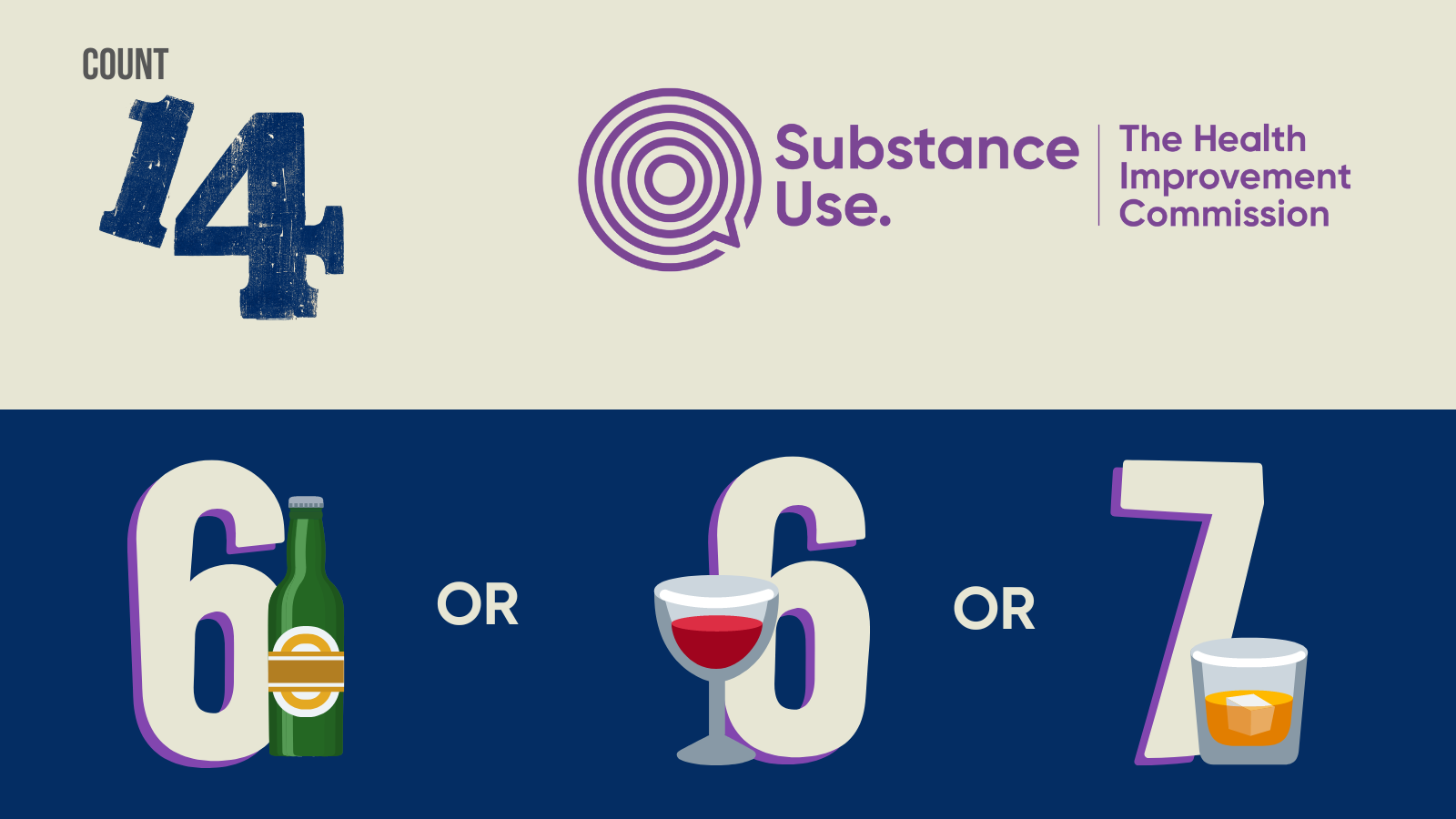Islanders more aware of drinking guidelines than two years ago
Over the past two years the Commission has been delivering a campaign to give people the information, knowledge and skills to manage their alcohol consumption in a healthy way. It has created challenges for the public to take part in, filmed fun videos, used local familiar faces to help spread the message, distributed handy tools to help measure intake, and even had the recommended guidelines driving round the island on the back of a bus.
The guidelines advise that to keep health risks from alcohol low, both men and women should not drink more than 14 units a week on a regular basis and should spread the units out evenly over three or more days.
After re-running a survey that was first conducted in 2020, the Commission found that:
- 6% more people are aware there is a low risk drinking guideline (91% in 2020 vs 97% in 2022)
- 6% more people are aware that the guideline is 14 units for both men and women (14% in 2020 vs 20% in 2022).
- There was also a 5% increase in the number of people who know the guideline is 14 units for men or women or both (28% in 2020 vs 33% in 2022).
The survey, which had almost 800 responses, similarly found that even where people did not know the correct number of units (14 per week), they were more accurate than in 2020. 9% more people were accurate to within 1 unit, and there was a 13% increase in those accurate to within 2 units.
Although the current guidelines have been in place since 2016, the previous guidelines date back more than 30 years to 1987 and recommended different unit limits for men and women. This is no longer the case with 14 units for both.
This year’s survey found a 9% increase in the number of people who knew the guidelines were the same for men and women (22% in 2020 vs 31% in 2022).

Andrea Nightingale, The Health Improvement Commission’s Substance Use Lead, said: “We were very pleased to see that the work we’ve been doing over the past two years has had a positive impact. One of the biggest challenges we’ve had in promoting the new guidelines, is making sure the community are aware that the guidelines are now the same for men and women. However, our results show the majority still believe there to be a difference, so there is clearly more work to be done.”
In addition to exploring islanders’ awareness of the drinking guidelines, the survey also asked for feedback on the campaign. 64% of respondents who had heard or seen the campaign agreed or strongly agreed that it made them think about their own alcohol drinking. The majority also said the campaign informed them about the guidelines, caught their attention, was convincing and was memorable.
“It’s really valuable, two years into the Count 14 campaign, to check in on whether it is having the impact that we hoped for on public knowledge,” said Andrea. “These are really promising results and will help inform where the campaign goes next. The survey has helped pinpoint that a key message to focus on is about spreading drinks out throughout the week and having a number of alcohol-free days – in addition to counting 14. Thank you to everyone who took part.”